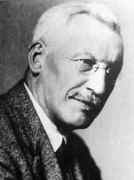Person: Dixon, Alfred Cardew

Alfred Dixon graduated from London and Cambridge and then had professorial appointments in Galway and Belfast. He worked on ordinary and partial differential equations.
Mathematical Profile (Excerpt):
- Alfred was educated at the Quaker School in Kendal.
- Dixon was appointed a Fellow of Trinity College in 1888 and was awarded the second Smith's prize.
- Dixon was appointed to the Chair of Mathematics at Queen's College, Galway, Ireland in 1893.
- (This university is now named University College, Galway.) Dixon's appointment was to fill the chair left vacant when George J Allman, a noted historian of mathematics, retired.
- The appointment to Galway seems to have been good for Dixon since his mathematical output improved both in quantity and in quality from this time.
- In 1901 Dixon was appointed to the chair of mathematics at Queen's College, Belfast.
- Dixon's main area of research was in differential equations and he did early work on Fredholm integrals independently of Fredholm.
- Soon after his appointment at Galway Dixon published his only textbook The Elementary Properties of Elliptic Functions (1894).
- During his time in Galway, Dixon proved a combinatorial identity which was later generalised by Fjelsted in 1954.
- Later in his career Dixon worked on the problem of a loaded elastic rectangular plate.
- A devout Methodist Dixon was active in the Philharmonic Orchestra.
Born 22 May 1865, Northallerton, Yorkshire, England. Died 4 May 1936, Northwood, Middlesex, England.
View full biography at MacTutor
Tags relevant for this person:
Origin England
Thank you to the contributors under CC BY-SA 4.0! 

- Github:
-

- non-Github:
- @J-J-O'Connor
- @E-F-Robertson
References
Adapted from other CC BY-SA 4.0 Sources:
- O’Connor, John J; Robertson, Edmund F: MacTutor History of Mathematics Archive
